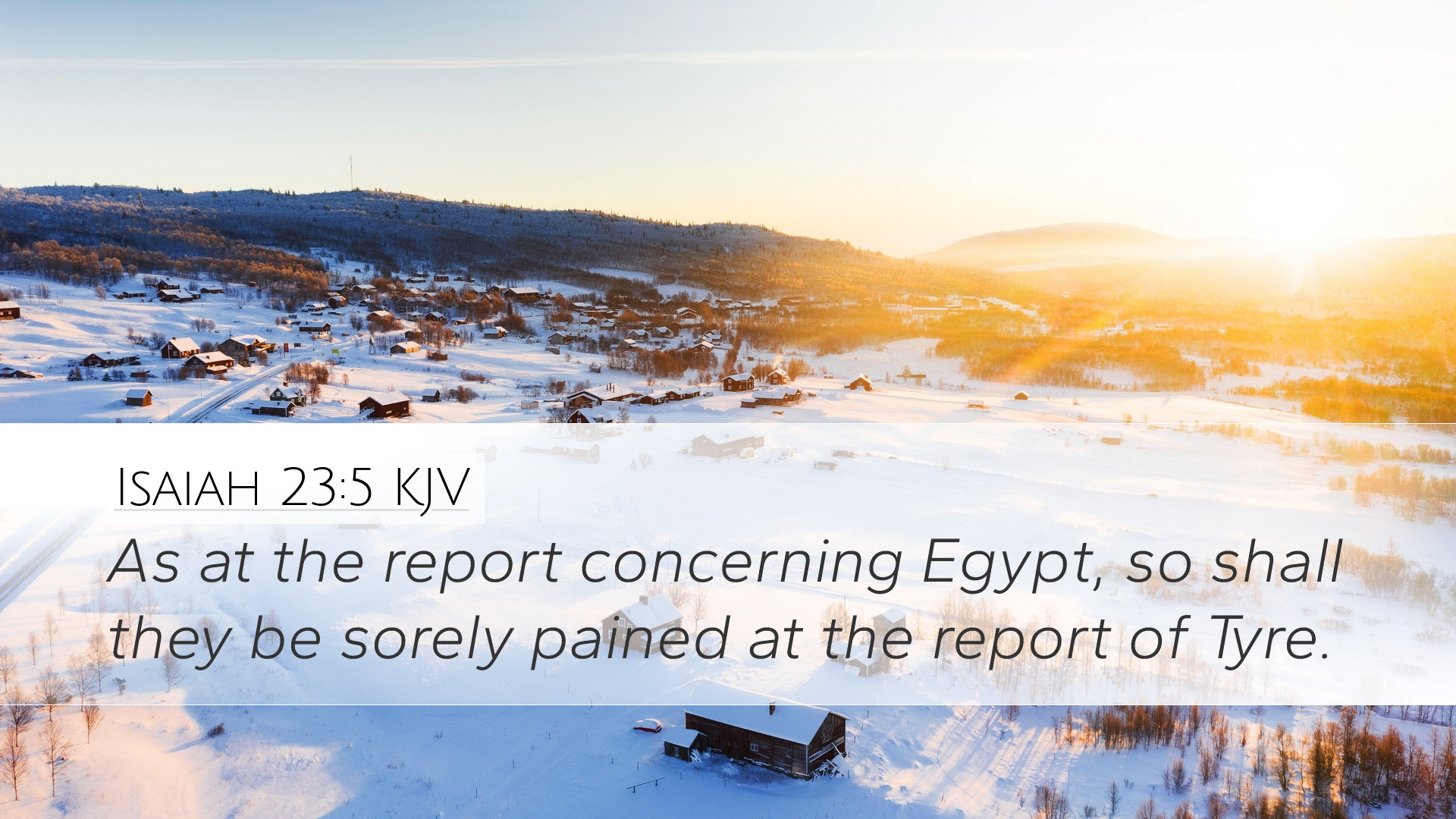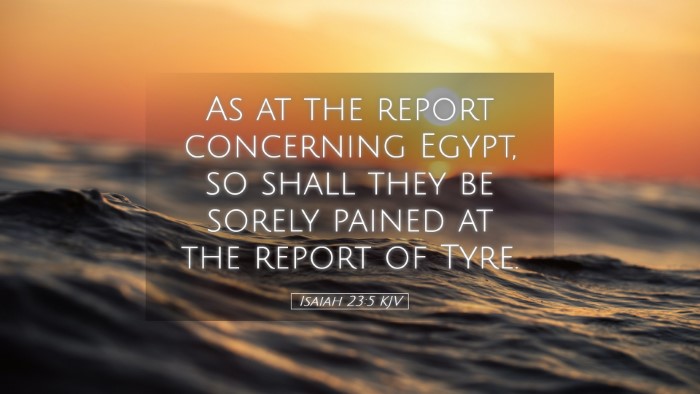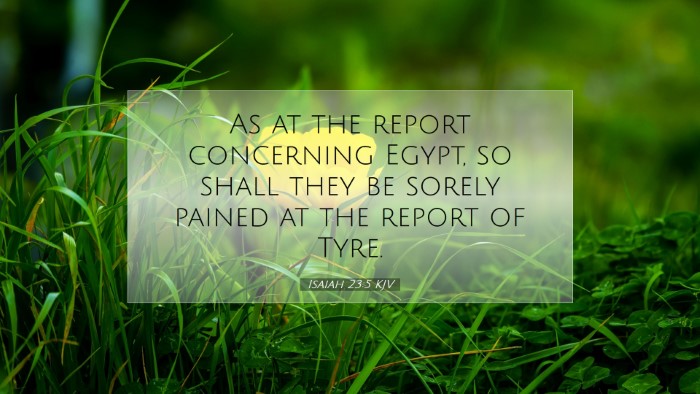Commentary on Isaiah 23:5
Isaiah 23:5 states: "When the report comes from Egypt, they will be in anguish at the report from Tyre." This verse responds to the judgments against Tyre and the repercussions that would resonate throughout the surrounding nations, particularly Egypt. The commentary draws from various public domain sources, providing insights that are crucial for understanding the theological, historical, and literary contexts of this scripture.
Contextual Background
The prophecy in Isaiah 23 is directed towards Tyre, a prominent city in Phoenicia known for its maritime prowess and commercial wealth. Matthew Henry highlights the significance of Tyre in ancient trade routes and how its fall would send shockwaves throughout the Mediterranean, affecting various nations that relied on Tyrian commerce.
Albert Barnes adds to this context by noting that Tyre was not only a commercial hub but also symbolized pride and human ambition. Thus, its judgment serves as a divine declaration against the overreliance on wealth and trade, setting a precedent that resonates with all nations, including Egypt.
Analysis of the Verse
Isaiah 23:5 carefully illustrates the emotional and prophetic outcry that results from the news of Tyre's downfall:
- Response of Nations: The verse implies a significant reaction from Egypt, indicating that the effects of Tyre's judgment extend beyond its geographical boundaries.
- Emotion and Anguish: The phrase "they will be in anguish" emphasizes the psychological impact that Tyre's fall would have on surrounding nations, revealing their fear and uncertainty over their stability in trade and economics.
Theological Implications
This verse opens discussions on divine sovereignty and judgment. Adam Clarke comments on the broader discourse surrounding God’s power over nations. The distress felt by Egypt upon receiving news of Tyre’s fall demonstrates how interconnected the ancient world was, a theme that leads believers today to reflect on global interdependencies.
Additionally, this passage serves as a reminder of God’s judgment upon nations that rise in pride. The calamity of Tyre becomes an object lesson for all nations, including God’s people, on the importance of humility and reliance on divine provision rather than human strength.
Historical Interpretation
Historically, Tyre faced numerous assaults, both from external nations and internal strife. Matthew Henry records the devastation wrought by the Babylonians and later, Alexander the Great, which ultimately led to Tyre's diminished status. This historical trajectory offers a testament to the truth of Isaiah's prophecy, showcasing the decline of human pride in the face of divine orchestration.
Moreover, Barnes accentuates that the anxiety of Egypt reflects their economic vulnerabilities. As a nation that heavily relied on trade with Tyre, the collapse of Tyre poses a direct threat to Egypt’s prosperity. This emphasizes the practical outcomes of prophecy in the daily lives of those in biblical times.
Lessons for Today
The insights derived from Isaiah 23:5 continue to be relevant for contemporary believers and scholars alike:
- Interdependence and Globalization: As nations today remain interlinked through trade, the lessons from Tyre's fate remind us of the fragility of economic power and the sovereignty of God in human affairs.
- Call to Humility: The emotional turmoil experienced by Egypt upon hearing of Tyre’s fall serves as a wake-up call against pride and self-sufficiency. This verse invites a humbling recognition of our needs for God’s providence and guidance.
- Prophetic Motivation: Pastors and theologians are encouraged to interpret modern events in light of this scripture, examining how contemporary ‘Tyres’ may face divine judgment and what that indicates about our own societies.
Conclusion
Isaiah 23:5 encapsulates profound truths about divine judgment, the interconnectedness of nations, and the ongoing call for humility before God. The combined insights of Matthew Henry, Albert Barnes, and Adam Clarke offer a multi-dimensional view that can help enrich the understanding of this verse for pastors, students, theologians, and Bible scholars. As we reflect on Tyre's fate and its impact on Egypt, let it serve as a sobering reminder of the sovereign hand of God in our lives and the world around us.


